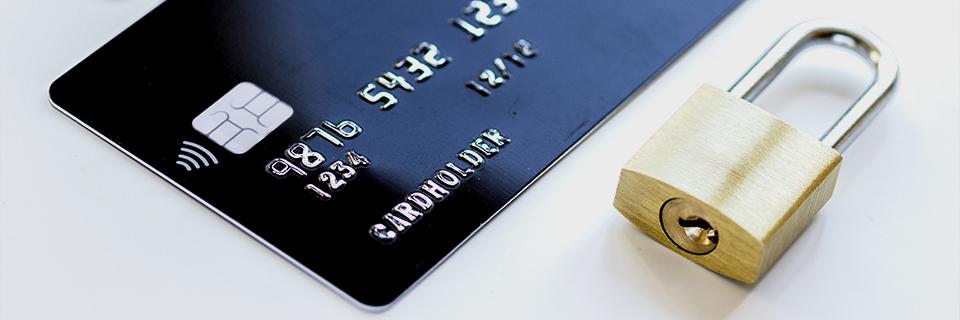
During the last few years, scammers have capitalized on the rising fuel costs. The trucking industry is not immune to this problem, as fuel card customers have become popular targets for attacks. Tactics include people pretending to be an employee of your fuel card company or scamming your information right at the pump.
Fuel card fraud is becoming one of trucking’s quietest ongoing epidemics. According to one recent survey, half of industry leaders stated that card fraud specifically accounted for about five percent of their fuel spend. And the issue is only becoming more common, with cases of card skimming rising by over 70 percent in the past year.
How can you keep yourself protected from fuel fraud? Below, we’ll go over what to look for and tips for preventing scammers from accessing your card.
Fuel Card Fraud in Trucking
Generally, there are two different types of fuel card fraud: third-party fraud and “friendly” fraud. Third-party fraud is where that tactic of card skimming comes in, although these types of scams can also occur over the phone as well. With card skimming, fraudsters will install a skimming device that reads a card’s data using its magnetic key strip.
That data is unencrypted when swiped and the device often fits perfectly within the card slot. As a result, this particular crime is hard to detect, and the card will need to be blocked if compromised. Often, these instances of third-party fuel fraud are cases of organized theft performed by criminal organizations.
“Friendly” fraud, as you may be able to guess, is when a driver or employee uses a fuel card to make unauthorized purchases. For instance, an employee may fill a company truck with diesel fuel and then use the card to fill up a personal vehicle as well, or they may purchase unrelated items from a given fuel station.
This type of fraud can also be very hard to catch and put a stop to, mainly because it involves gathering a significant amount of evidence and making a serious accusation against someone working within your organization.
How to Spot Fuel Card Fraud
The fact that everyone knows how big of a problem fuel card fraud is, yet is only getting worse, tells you how hard it is to spot. It is very rarely blatant and obvious. This makes it critical for trucking companies to consistently monitor their expenditures to detect signs of fraud before they cost your fleet, potentially, thousands of dollars. Below are some of the indicators to watch for.
Frequent fill-ups
Pay attention to how often drivers fill up their tank. If an individual fills up their tank and then, just a short time later, fills it up again, it could be a sign of fraud. In these instances, employees or third-party scammers could be siphoning fuel from a company car, or a company driver may be using a fleet vehicle on their own personal time.
Inconsistent fuel charges
Understand the routes and work schedules of employees within your company. If you start to notice fuel charges occurring from unlikely locations outside of work hours, it could be a sign that unauthorized individuals are using the fuel card or that employees may be filling personal vehicles. Typically, regional drivers or those with established routes and routines will fill up at the same fuel stations.
Mileage and tank capacity inconsistencies
Every company should know the tank capacity and fuel range for their drivers’ vehicles. If fuel purchases consistently exceed tank capacity of a vehicle, or if a vehicle consumes less fuel than what the driver purchased, it’s a telltale sign of fuel card fraud. Internally, make sure to monitor your drivers’ fuel receipts to see if either of these signs starts to emerge as a trend.
How to Avoid Fuel Card Fraud
As scammers evolve in the methods they use, there is no sure way to completely avoid potential fuel card fraud. However, there are a few things you can do to spot fraud and protect your business.
At the pump:
Scams that occur at the pump mostly comprise skimming and shimming, which involves attaching devices directly to the fuel pump in an effort to read the magnetic strip or chip and get your pin number or zip code.
- Look over the card reader for anything that seems suspicious, tampered with or loose. If something doesn’t seem right, go inside to pay.
- Check the pump for stickers or other signs that indicate the pump is regularly inspected.
- Use your fuel card to pay for fuel, instead of using a debit card. If a scammer gets your debit card information, they have direct access to your bank account.
- If your fuel card offers mobile fueling, use it whenever possible.
- Try to fuel at well-lit, well-maintained stations.
Over the Phone:
Scammers may contact you via phone or email to ask for personal account information, claim you have late payments or fees, etc. in an attempt to access your account and steal your money.
- Limit the information you share, and never give out secure information over the phone or through email (such as user ID, card number, PINs and passwords).
- Never click links or attachments in messages from an unknown source.
- If you are unsure, contact your fuel card’s customer support to verify the validity of the call or email.
- Keep your anti-virus software and firewall protection up to date.
- As a reminder, RTS Carrier Services and their providers (Fleet One and Titan) will never ask for important account details over the phone.
Additionally, one of the best ways to protect your company from fuel card fraud is to find a fuel card partner that offers additional security measures. Features like card lock, help keep your card(s) protected even when you aren’t using it.